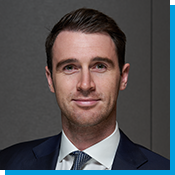KEY BENEFITS
In pursuit of consistent high income
Capital Group UK – Global High Income Opportunities (GHIO) invests broadly across the higher yielding universe to construct a diverse portfolio built on high-conviction ideas, seeking to deliver a consistent high level of income over the long term.
High, consistent income
Long track record of high income1: 7% average over the last 10 years.
Total return driven by income
A bottom-up approach to high income generation has driven the strategy's total return
Diversification
Access to attractive opportunities by investing across global higher yielding sectors
Past results are not a guarantee of future results.
Capital Group UK – Global High Income Opportunities has been available to UK investors from 18 January 2023 as an open-ended investment company (OEIC). The Luxembourg SICAV Capital Group Global High Income Opportunities (LUX) (inception: 7 May 1999) is referenced as a representative account for the strategy. This is intended to illustrate our experience and capability in managing this strategy over the long term.
THINGS TO CONSIDER
Pursuing income while being mindful of risks
GHIO’s diversified and flexible approach means the team can employ different and varied return drivers across the higher yielding sectors it invests in.
Additionally, an independent risk team utilises a multi-layer approach that considers investment, operational and strategy-level risks.
Risk considerations
WHY INVEST IN THIS FUND ?
GHIO seeks to deliver diversified income
GHIO's investment team seeks to deliver a consistent high level of income over the long term by investing broadly across the higher yielding universe.
The investment team behind this fund

David Daigle
New York
30 years with Capital

Luis Freitas De Oliveira
Geneva
31 years with Capital

Kirstie Spence
London
29 years with Capital

Shannon Ward
Los Angeles
8 years with Capital
ESG FOCUS
ESG characteristics
ESG is woven into our investment process through three tightly integrated components: investment frameworks, monitoring and engagement. The fund also applies ESG and norms-based screens and has a carbon target.2
For more information on our approach, see ESG at Capital Group.
Screens
The fund excludes issuers within certain sectors, as well as those that violate UN Global Compact principles.
Carbon target
The fund’s carbon footprint is also monitored and managed to be lower than its reference index.3
Let's kickstart your client conversation
Additional information on how this fund can help meet your clients’ needs
- An income-focused approach
The strategy has a long track record of high income1: 7% average over the last 10 years.
- A strategy that seeks to provide a total return
May be suited to investors looking for consistent high income or total return. Total returns are driven by a bottom-up approach to high income generation.
- Diversified sources of income
Investing broadly across higher yielding sectors with different return drivers enables a more holistic approach to risk management.
- ESG integration and beyond
Integrates investment-led ESG considerations as well as specific ESG exclusions and an explicit carbon footprint target.2
Capital Group UK – Global High Income Opportunities (incepted 18 January 2023) is available to UK investors as an open-ended investment company (OEIC). The Luxembourg SICAV, Capital Group Global High Income Opportunities (LUX) (inception: 7 May 1999) is referenced as a representative account for the strategy. This is intended to illustrate our experience and capability in managing this strategy over the long term.
Past results are not a guarantee of future results.
Invested capital is at risk; the fund aims to achieve a positive return over the long term although there is no guarantee this will be achieved over that or any time period.
Considering the uncertain and volatile nature of global markets, GHIO offers a broadly diversified exposure to high-yield bonds and emerging markets debt opportunities, with a holistic approach to risk management.
You could benefit from:
- Exposure to structurally better credit quality in the corporate high yield bond market, and attractive opportunities in emerging markets debt.
- A rising portfolio yield, supported by the current inflationary environment, which could offer a return cushion, particularly for new investors.
- A fundamental income focus, which aims to deliver consistent returns despite market volatility.
- The application of ESG criteria to security and country selection, helping promote social and environmental characteristics.
The fund seeks to provide, over the long term (i.e., a period of over 5 years), a total return, which is driven primarily by high income generation. A high level of income is defined as equal to, or in excess of, the average yield4 of the funds in its Investment Association sector, Sterling Strategic Bond, assessed over rolling 3-year periods.
Capital Group has more than 30 years of experience investing in both emerging markets debt and high-yield credit. We launched our first US high-yield strategy in 1984, and started investing in emerging markets debt in 1988.
Our dedicated emerging markets debt and high-yield teams have vast, specialist experience in their specific sectors, and our integrated research process, which brings together both fixed income and equity analysts*, further enhances our understanding of portfolio holdings.
Taking the long view
We base our investment decisions on a long-term perspective, aligning our goals with the interests of your clients. Superior, long-term returns are our goal. Global High Income Opportunities managers are rewarded for their results, not the level of assets they manage.
Breadth of experience
Our process enables individual investment professionals to act on their highest convictions while limiting the risk associated with isolated decision-making. We draw on their diverse experience to build the portfolio.
Deep, fundamental research
Few firms can match the scale and scope of our proprietary research. Investment analysts conduct thousands of research visits globally every year. This research is then combined with comprehensive macro analysis. This approach has been essential to the results we have delivered to our investors.
*Capital Group manages equities through three investment divisions that make investment and proxy voting decisions independently. Fixed income investment professionals provide fixed income research and investment management across the Capital organisation; however, for securities with equity characteristics, they act solely on behalf of one of the three equity investment groups.
Find out more about what this fund has to offer
WHY CAPITAL GROUP
A leader in global investing
For more than 90 years, we’ve been searching the world for long-term opportunities, making Capital one of the oldest global investors. We have also grown to become one of the world’s largest active fixed income fund managers.
Global investing credentials
US$2.8T
in total assets managed
25 years
average investment experience of our fixed income portfolio managers
US$550.3B
Fixed income assets managed*
*Assets under management by Capital Fixed Income Investors.
Data as at 31 December 2024
High conviction investments. Diverse perspectives.
The Capital SystemTM is designed to produce diverse portfolios that deliver consistent long-term results, a smoother ride and management continuity over a range of market conditions.
We believe ESG is key to successful investing. So we consider environmental, social and governance issues before we invest.
Explore insights to help you navigate today's market
We're here with the support and solutions you need.
Don't hesitate to contact us if you have questions or need assistance.
Financial Intermediary Team contact details:
Telephone: 0207 864 5500
[Monday to Friday, 9.00am to 5.00pm]
Email: CapitalGroup_UKSales@capitalgroup.com

Chris Miles
Head UK Client Group
+44 (0) 20 7864 5339
Chris.Miles@capitalgroup.com

Tri Huynh
Managing Director
Financial Intermediaries
Strategic Partnerships
+44 (0) 20 7864 5798
Tri.Huynh@capitalgroup.com

Sam Streatfeild
Managing Director
Financial Intermediaries
London, South of England, Channel Islands & Middle East
+44 (0) 20 7864 5529
Sam.Streatfeild@capitalgroup.com

Robert Waterhouse
Managing Director
Financial Intermediaries
London, Family Office & Ireland
+44 (0) 20 7864 5726
Rob.Waterhouse@capitalgroup.com

Adam Price
Managing Director
Financial Intermediaries
London, East of England & Scotland
+44 (0) 20 7864 5536
Adam.Price@capitalgroup.com

Shreya Anil
Associate Director
Financial Intermediaries
London, West of England & Channel Islands
+44 (0) 20 7864 5683
Shreya.Anil@capitalgroup.com

Katherine Valius
Business Development Associate
Financial Intermediaries
+44 (0) 20 7864 5980
Katherine.Valius@capitalgroup.com

Celia Mcanulty
Business Development Associate
UK & Ireland
+44 (0) 20 79773 76691
celia.mcanulty@capitalgroup.com
As at 31 December 2023. Strategy: Based on Capital Group Global High Income Opportunities (LUX) (inception: 7 May 1999), a representative account for the strategy.
- Income yield is total income earned by the portfolio, net of withholding taxes and before management fees and expenses, divided by average net assets over the past 12 months. 10-year average annual income yield is to 31 December 2023. Dividend yields distributed by share classes will differ dependent on type and how investors choose to pay management fees and expenses.
- Carbon footprint target is based on weighted average carbon intensity.
- The index reflects 50% Bloomberg US High Yield 2% Issuer Cap Index, 20% JPMorgan EMBI Global, 20% JPMorgan GBI-EM Global Diversified and 10% JPMorgan CEMBI Broad Diversified Index.
- 3.47% as at 31 December 2023. Source: Morningstar
Fund risks
Capital Group UK - Global High Income Opportunities
Bonds risk: The value of bonds can change as a result of interest rate changes – typically when interest rates rise, bond values fall. Funds investing in bonds are exposed to credit risk. A decline in the financial health of an issuer could cause the value of its bonds to fall or become worthless.
Counterparty risk: Other financial institutions provide services to the fund such as safekeeping of assets, or may serve as a counterparty to financial contracts such as derivatives. There is a risk the counterparty will not meet their obligations.
Derivative instruments risk: Derivatives are financial instruments deriving their value from an underlying asset and may be used to hedge existing exposures or to gain economic exposure. A derivative instrument may not perform as expected, may create losses greater than the cost of the derivative and may result in losses to the fund.
Emerging markets risk: Investments in emerging markets are generally more sensitive to risk events such as changes in the economic, political, fiscal and legal environment.
High yield bonds risk: Lower rated or unrated debt securities, including high yield bonds, may, as a result, be subject to liquidity, volatility, default and counterparty risk.
Liquidity risk: In stressed market conditions, certain securities held by the fund may not be able to be sold at full value, or at all. This could cause the fund to defer or suspend redemptions of its shares, meaning investors may not have immediate access to their investment.
Operational risk: The risk of potential loss resulting from inadequate or failed internal processes, people and systems or from external events.
Sustainability risk: Environmental, social or governance event or condition that, if it occurs, could cause an actual or potential material negative impact on the value of an investment of the fund.
Fund risks
Capital Group Global High Income Opportunities (LUX)
Bond Connect risk: Investments in Chinese onshore bonds traded on CIBM via Bond Connect are subject to various risks associated with clearing and settlement, as well as liquidity, regulatory and counterparty risks.
Bonds risk: The value of bonds can change as a result of interest rate changes – typically when interest rates rise, bond values fall. Funds investing in bonds are exposed to credit risk. A decline in the financial health of an issuer could cause the value of its bonds to fall or become worthless.
China IBM risk: The fund may invest on the China Interbank Bond Market. This market can be volatile and subject to liquidity constraints due to low trading volumes. As a result, the price of debt securities traded on this market can fluctuate significantly, spreads may be large, and realisation costs may be significant.
Counterparty risk: Other financial institutions provide services to the fund such as safekeeping of assets, or may serve as a counterparty to financial contracts such as derivatives. There is a risk the counterparty will not meet their obligations.
Derivative instruments risk: Derivatives are financial instruments deriving their value from an underlying asset and may be used to hedge existing exposures or to gain economic exposure. A derivative instrument may not perform as expected, may create losses greater than the cost of the derivative and may result in losses to the fund.
Emerging markets risk: Investments in emerging markets are generally more sensitive to risk events such as changes in the economic, political, fiscal and legal environment.
High yield bonds risk: Lower rated or unrated debt securities, including high yield bonds, may, as a result, be subject to liquidity, volatility, default and counterparty risk.
Liquidity risk: In stressed market conditions, certain securities held by the fund may not be able to be sold at full value, or at all. This could cause the fund to defer or suspend redemptions of its shares, meaning investors may not have immediate access to their investment.
Operational risk: The risk of potential loss resulting from inadequate or failed internal processes, people and systems or from external events.
Sustainability risk: Environmental, social or governance event or condition that, if it occurs, could cause an actual or potential material negative impact on the value of an investment of the fund.
Risk factors you should consider before investing:
- This material is not intended to provide investment advice or be considered a personal recommendation.
- The value of investments and income from them can go down as well as up and you may lose some or all of your initial investment.
- Past results are not a guarantee of future results.
- If the currency in which you invest strengthens against the currency in which the underlying investments of the fund are made, the value of your investment will decrease. Currency hedging seeks to limit this, but there is no guarantee that hedging will be totally successful.
- Some portfolios may invest in financial derivative instruments for investment purposes, hedging and/or efficient portfolio management.
- There are additional risks associated with these funds. See fund risks for more information.
This communication is intended for the internal and confidential use of the recipient and not for onward transmission to any other third party.
This communication is issued by Capital International Management Company Sàrl (CIMC), unless otherwise stated, which is regulated by the Luxembourg CSSF - Commission de Surveillance du Secteur Financier. CIMC manages the Luxembourg-based UCITS fund(s), organised as a SICAV, which is a (are) sub-fund(s) of Capital International Fund (CIF).
For the OEIC fund: This material is issued by Capital Group UK Management Company Limited ("CGUKMC"), Registered office 1 Paddington Square, London, W2 1GL, authorised and regulated by the Financial Conduct Authority. CGUKMC manages the fund(s), which is a (are) sub-fund(s) of Capital Group Fund (CGF), established as a UK UCITS Scheme and structured as an umbrella company (under the OEIC Regulations).
You may be entitled to compensation from the Financial Services Compensation Scheme (the ‘Scheme’). Your entitlement to compensation depends on the type of business and the circumstances of the claim.
This communication is of a general nature, and not intended to provide investment, tax or other advice, or to be a solicitation to buy or sell any securities. All information is as at the date indicated and attributed to Capital Group unless otherwise stated. While Capital Group uses reasonable efforts to obtain information from third-party sources that it believes to be accurate, this cannot be guaranteed.
The fund(s) is (are) offered only by Prospectus, together with any locally required offering documentation. In the UK, this is the UCITS Key Investor Information Document (KIID). These documents are available free of charge at capitalgroup.com/europe, and should be read carefully before investing.
Investors acquire shares of the fund, not the underlying assets.
The material is not intended to be distributed or used by persons in jurisdictions that prohibit its distribution. If you act as representative of a client it is your responsibility to ensure that the offering or sale of fund shares complies with relevant local laws and regulations.
The information in relation to the index is provided for context and illustration only. The fund is actively managed. It is not managed in reference to a benchmark.
The list of countries where the Fund is registered for distribution can be obtained online at www.capitalgroup.com
In Europe, facilities to investors (tasks according to Article 92 of the Directive 2019/1160, points b) to f)), are available at www.capitalgroup.com/individual-investors/lu/en/contact-us.html
For European investors, a summary of Fund Shareholder Rights is available at www.capitalgroup.com/eacg/entry-page/shared/summary-of-investor-rights.html
CIMC may decide to terminate its arrangements for marketing any or all of the sub-funds of Capital International Fund in any EEA country or in any other jurisdictions where such sub-fund(s) is/are registered for sale at any time, in which case it will do so in accordance with the relevant UCITS rules.
All Capital Group trademarks are owned by The Capital Group Companies, Inc. or an affiliated company. All other company names mentioned are the property of their respective companies.
© 2024 Capital Group. All rights reserved.
